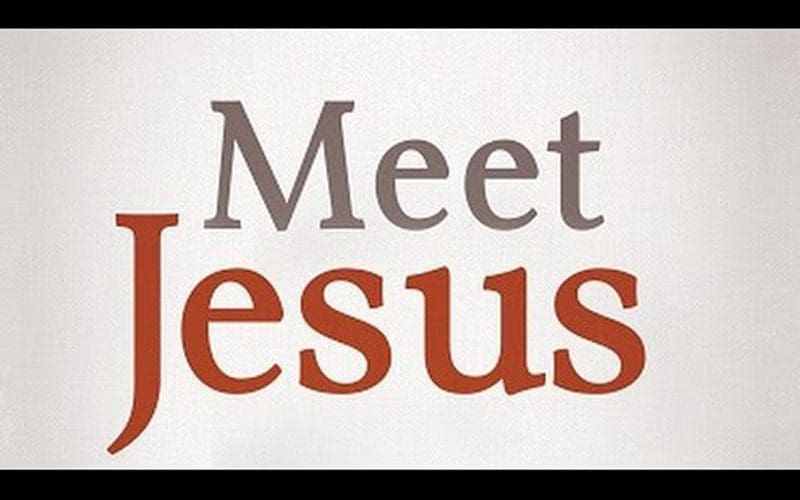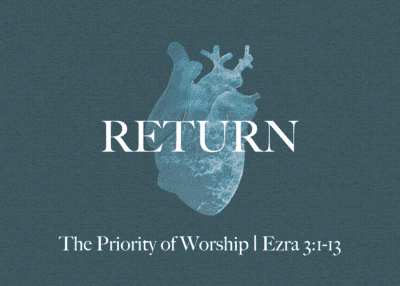This is the testimony of John, when the Jews sent priests and Levites from Jerusalem to ask him, “Who are you?” He confessed, and did not deny, but confessed, “I am not the Christ.” And they asked him, “What then? Are you Elijah?” He said, “I am not.” “Are you the Prophet?” And he answered, “No.” So they said to him, “Who are you?”
(John 1:19-22)
Last year I got into an extended conversation with a friend who was struggling over his faith. He told me that he needed to know who he was and that he did not want a Christian answer, so he had decided to work with a therapist who was not a Christian.
The therapist asked him, “So, who are you?” My friend spoke about his job, and described what he did.
“You are more than your work. That’s what you do. We are going to get to who you are.”
“I am a husband and a father.”
“You are more than your family. That is who you love. We want to get to who you are.”
So he said to me, “You can’t define yourself by your job or your family.”
“I agree,” I said “but tell me, what came out of the therapy? Who are you?”
He said, “I really don’t know.” The work of deconstruction had been done, but nothing had been put in its place.
My friend was not in a place of wanting to hear a Christian answer to that question, at that time, though I am glad to say that he has made progress since. But when I went to bed that night, I wrote these notes on my iPad:
Who am I?
- I am a creation of God who belongs to him and exists for his glory.
- I am a sinner who deserves nothing from God, but looks to him for mercy.
- I am a new creation in Christ, redeemed at inestimable cost, despite all the struggles that arise from the sin that remains in my flesh.
- I am a child of God destined for unimaginable joy through Jesus Christ, my Lord and Savior alone.
If you were to try and take “the Lord” out of my answer, I would have no way of knowing who in the world I am.
Our series is called “Meet Jesus.” Last week we saw that when you meet Jesus, you come to know who God is. Today we are going to see that when you meet Jesus, you get to know who you are. It was John Calvin who said that all the wisdom we possess is divided into two parts—knowing God and knowing ourselves. You never get one without the other. And when you meet Jesus, you get both.
Please open your Bible at the Gospel of John and we will begin at verse 19: “This was the testimony of John.” John, of course, was the forerunner of Jesus. He was the one who introduced Jesus in his public ministry. We are going to see in these verses what he said about himself and what he said about Jesus. But in order to understand what he says, it will help us to know something about this man and his ministry.
Who Was John the Baptist?
The Man
i. He was born, through a special intervention of God’s power
John’s father, Zechariah, and his mother, Elizabeth, were godly people, but they had no children and they were advanced in years (Luke 1:7). An angel of the Lord appeared to Zechariah and told him that he and his wife would have a child, but he did not believe it.
The birth of John came about in the usual way—through the union of his father and mother—but it involved an unusual and remarkable intervention of the power of God.
ii. He was a man sent from God
We find this at the beginning of John’s Gospel: “There was a man sent from God, whose name was John. He came as a witness to bear witness about the light, that all might believe through him. He was not that light but came to bear witness about the light” (John 1:6-8).
iii. He was filled with the Holy Spirit
The angel said to Zechariah, “He will be filled with the Holy Spirit, even from his mother’s womb” (Luke 1:15). This, of course, does not mean that John was without sin. Being filled with the Holy Spirit does not make a person sinless. But it does mean that God had laid claim to him, that Jesus Christ had taken hold of him, and that the Holy Spirit was upon him before he was even born.
iv. He was a burning and shining lamp
These are the words of Jesus about John the Baptist: “He was a burning and shining lamp, and you were willing to rejoice for a while in his light” (John 5:35). This says something about the character of his ministry. Burning indicates passion and heat. Shining indicates light and clarity. Here was a man who spoke with the light of a clear mind and the passion of a warm heart.
Here is a great prayer to pray whenever we have the privilege of speaking about Christ to others in public or in private: “Lord, let me speak of you with the light of a clear mind and the passion of a warm heart.”
v. He was one of the greatest people who had ever lived
“Truly, I say to you, among those born of women there has arisen no one greater than John the Baptist” (Mat. 11:11). There were others who were also great, but no one was ever greater than him. According to Jesus Christ, John was among the greatest people who ever lived in the history of the world.
The Ministry
By any standards, this was a remarkable man, and he had a remarkable ministry.
i. His lifestyle
“John wore a garment of camel’s hair and a leather belt around his waist, and his food was locusts and wild honey” (Mat. 3:4). John was not an ordinary person, in terms of his appearance and lifestyle.
ii. His location
“I am the voice of one crying out in the wilderness” (John 1:23). This was hardly an ideal spot—out in the wilderness? It was not the most accessible location.
iii. His message
He said, “I am the voice of one crying out in the wilderness, ‘Make straight the way of the Lord,’ as the prophet Isaiah said” (John 1:23).
“The Lord is coming. You’re going to meet with God!” John’s message was urgent, “Something that’s never happened in the history of the world is going to happen and you better be ready for it.” And his message was so clear that it could be summarized in a single sentence. John’s message involved a call to action: “Make straight the way of the Lord. Clear away the rubble. Get ready to meet with God.” And his message was filled with hope: John preached a baptism of repentance “for the forgiveness of sins” (Mark 1:4).
A remarkable response
The response to John’s ministry was remarkable. People came to John in vast numbers: “Jerusalem and all Judea and all the region about the Jordan were going out to him” (Matt. 3:5). People who came wanted to confess their sins.
These people knew enough to realize that if they were to meet God, they had better do something to get ready, “If I’m going to meet with God, I’ve got to do some confessing and repenting to get ready.”
Many people have a profound awareness of their own need to get right with God, “I believe in God, but I have not been walking with him. I am not at peace. I don’t feel clean. Things are not right between me and God and I need to do something about it.”
People hear that a man is saying, “We need to get ready to meet with God.”
They say to one another, “That is what I need to do. Where can I hear more about this?”
“He is in the wilderness.”
“Pack your bags kids. We are going for a trip to the desert.”
The response to John’s ministry was such that the Pharisees decided to send a delegation to find out what was going on.
Now I want us to notice two things from these verses:
1. What John says about himself, and
2. What John says about Jesus. The ministry of any person or of any church will be shaped by these two things: What we say about ourselves and what we say about Jesus.
John preached in a way that humbles sinners and exalts the Savior, and that should be a hallmark of all that we say and do. The gospel always humbles sinners and exalts the Savior.
It is the character of people who are shaped by the gospel to make little of themselves and to make much of Jesus. To paraphrase James Denney, “We cannot communicate, at the same time, that we are great and that Jesus is also great.”
What John Says about Himself
The Jews sent priests and Levites from Jerusalem to ask him, “Who are you?” (John 1:19)
Notice what is happening here. There is a clash. John has a clear mission: To speak about Jesus. But these people say, “We want to know about you! Tell us about yourself!” The world is always fascinated with people. That’s why we make celebrities and then we want to know the inside story of their private lives—what they think and feel.
You can see the clash here: John says, “I want you to know who Jesus is.” The people say, “We want to know more about you. We want to know who you are.” The pressure is on for John to make his ministry about himself.
The journalist from the Jerusalem Chronicle comes out to the desert to do a feature article on John. She turns on the tape recorder, sticks a microphone under John’s nose and says, “So John, why do you think your ministry is proving so successful? Why are so many people coming to hear you? Tell us about your experience of being filled with the Holy Spirit. What does that feel like? Maybe you would like to start by telling us about your choice in clothing. Is this a new camel hair brand or something? And about your diet—whatever made you think of combining locusts with honey?”
“Who are you?” That’s the question that is brought to John by the delegation in the desert. Notice what John says in response, and what we must make clear about ourselves:
i. Not the Savior
He confessed, and did not deny, but confessed, “I am not the Christ.” (John 1:20)
The question shows that, in the mind of the Pharisees, it was at least possible that John might be the Christ. He spoke in the power of the Holy Spirit. He had a remarkable following. Lives were changed through his ministry: “Maybe he is the Christ?”
But John gives this clear and emphatic answer. “I am not the Christ. I am not the Savior. I am not the answer to the great needs of the people. The answer does not lie in me.” When you love and serve others, it is easy to get the idea that in some way you are the one who can fix their problems.
John’s words remind us: You are not the Savior. You are not the Savior of the person you are mentoring. You are not the Savior of your friend, your husband, your wife, or your children. That is a role you cannot fulfill and a burden you could not ever bear.
ii. Not a wonder-worker
They asked him, “What then? Are you Elijah?” He said, “I am not.” (John 1:21)
Elijah performed great wonders by the power of God. He prayed that it would not rain, and the Scripture tells us that it did not rain for three and a half years. He raised the son of a widow to life, and gave him back to his mother. At Mount Carmel, he called down fire from heaven and it burned up a sacrifice that had been drenched in water seven times.
So the delegation asks, “Are you Elijah.” And John says, “I am not.” [1] John did no miracles. He was not a worker of wonders.
iii. Not a law-giver
“Are you the Prophet?” And he answered, “No.” (John 1:21)
Notice they do not ask him, “Are you a prophet?” They ask him, “Are you the Prophet?” The reference here is to Deuteronomy 18:15, where Moses says to the people of God: “The Lord your God will raise up for you a prophet like me from among you.” The delegation wants to know, “Are you that prophet?” And again, John says, “No.”
These questions and John’s answers remind us of three great temptations that always face the church. First, the church has often been tempted to assume the role of the wonder worker: To focus on miraculous gifts and to present ourselves as the channels of divine power. They say to John, “Is that who you are?” And he says, “I am not.”
Second, the Christian church will often be tempted to assume the role of the great law-giver, like Moses: To present ourselves as the custodians of a moral lifestyle, to be the people who tell others what to do. They say to John, “Is that who you are?” And he says, “No.”
Worst of all, the church may be tempted to put ourselves in the place of Christ. Instead of saying that deliverance comes from Jesus, we somehow suggest that it comes from us. When that happens, we exchange the vertical for the horizontal, and end up suggesting to the world that salvation lies in our programs, our sacraments, our counsel, or our ministry.
What we say about ourselves matters. We are not the Christ. We are not able to answer the world’s problems. We are not in the business of telling everyone in the world how to live. We need to stand with John today and confess with him that we are not the Christ, we are not Elijah, and we are not a prophet like Moses. A failure to make this kind of confession, ends up with Christians or churches exalting themselves.
What John Says about Jesus
“Among you stands one you do not know, even he who comes after me, the strap of whose sandal I am not worthy to untie.” (John 1:26-27)
John says, “You want to know about me? Here’s what you need to know: I am all about someone else, and I am not worthy to untie his sandals!”
Think about the man who said this. John was a man sent from God. He was filled with the Holy Spirit from birth. He was blessed with a remarkable ministry that touched many people’s lives. He was one of the greatest people who has ever lived, and yet he says, “I am not worthy to untie the sandals on the feet of Jesus.”
The greatest Bible teacher you have ever heard is not worthy to untie the sandals on the feet of Jesus. The most Spirit-filled believer you have ever met is not worthy to untie the sandals on the feet of Jesus. The wisest counsellor you have ever sought is not worthy to untie the sandals on the feet of Jesus. The person you most love in this world is not worthy to untie the sandals on the feet of Jesus. Whoever you are, whatever you have achieved, you are not worthy to untie the sandals on the feet of Jesus.
This helps us to pull down the idols. And in a world infatuated with celebrities, it is a word that we desperately need to hear.
When John says, “I am not worthy” (John 1:27), he is making an important statement about himself. A man filled with the Holy Spirit says, “I am not worthy.” This reminds us that, at our Christian best, we are sinners saved by the mercy of God. Whatever progress you have made or will make in the Christian life, your hope rests not in yourself or in what you have accomplished, but on the mercy of God in Jesus Christ.
What John says here is a statement not only about himself, but also about ministry. When he says, “I am not worthy to untie his sandals,” he is saying, “I am not worthy to do the least thing for Christ.” Ministry is a gift. It is an immense privilege. It is not a right. We have this gift by the mercy of God (2 Cor. 4:1). We do not have a right to a healthy and thriving church. If God were to withhold his blessing from any of us, all that we seek to do for him would collapse completely. Unless the Lord builds the house, those who build it labor in vain.
So here is this great man. Our Lord says that he is among the greatest who has ever lived, and yet by his own confession, the greatest thing about him is that he knows Jesus. Why? Because Jesus is the eternal, personal, divine, creating, life-giving, incarnate Son of God.
What do you say?
I hope that all of us will make John’s confession about ourselves and about Jesus. I want to stand with John today and say, “I am not Christ. The answers do not lie in me. They are found in Jesus. And I am not worthy to untie the sandals on the feet of Jesus.”
When you see the glory of the Son of God, that he would want you as his friend, that he would lay down his life for you, and that through this he would be willing to bring you into the family of God, then you will be ready to say this too.
If you will take your stand with John today, three things will happen:
- You will grow in humility.
- You will learn to worship. One reason why many struggle to enter into worship is that we think too much of ourselves and too little of Jesus.
- You will discover hope. What we have been learning today does more than humble the proud, it also brings hope to the downcast.
To the person who says, “I am not what I want to be. I don’t have impressive gifts. I don’t have widespread influence. My life is not as I would want it to be,” John would say to you, “Life lies not in who you are, what you can do, or in what you have accomplished. Life lies not in who you are, but in who he is.” John’s Gospel was written so that you may believe that Jesus is the Christ… and that in believing you may have life in his name.
[1] At end of the Old Testament God said, “Behold, I will send you Elijah the prophet before the great and awesome day of the LORD comes (Mal. 4:5), and there was a profound sense in which John came in the spirit of Elijah. Our Lord spoke of this, when he said, “He is Elijah who is to come” (Mat. 11:14). One of the early fathers of the church [Gregory] said, “There is a double coming of Elijah. The one is in spirit, become Christ’s coming to Redeem; the other in person, before Christ’s coming in judgment. According to the first, Christ’s saying is true, ‘This is Elijah.’ According to the second, John’s speech is true: ‘I am not.’” Cited in J. C. Ryle, Expository Thoughts on the Gospels: John, p. 51, Banner of Truth, 1987.







